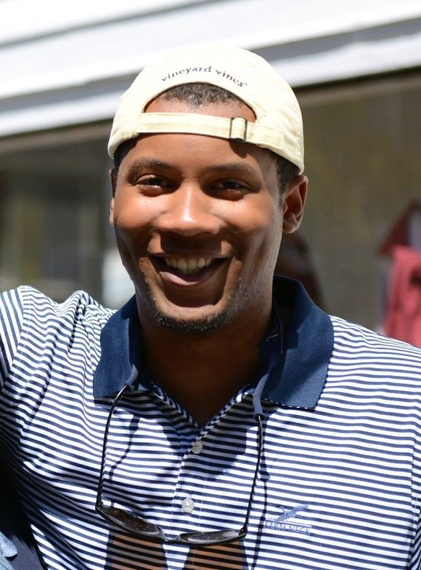My fingers are not shaped for basketball and my knees struggle to withstand a full season. Yet many young athletes run onto fields and courts even though our bodies urge us to stop. Many of us are oblivious to research that suggests the possibility of an unhealthy future if we succeed in the sport professionally. What promising high school quarterback would drop his NFL dreams because research shows that he could be at a higher risk for dementia later in life if these very dreams were to come true? The threat of dementia discourages him from playing as much as warnings of lung cancer convince a teenage smoker to quit. Youth blinds us to the negative consequences of many passions and pleasures. I know from experience. I have been forced to think about the bodily impact of my passion for sports earlier than many other young athletes. But I refuse to abandon basketball.
Before basketball, there was my first love: hockey. From age six, I was known for my hockey skills throughout my hometown of Larchmont. Then came the Great Blackout, which would become my mother's ammunition to force me to divorce the rough sport she never loved. I was ten years old. On the ice, my Tigers were winning. The coach of the opposing team saw me as the nightmare player. As I was racing the puck toward the goal yet again, he yelled to his players: "Get the Black Kid."
They followed their coach's orders. The next thing I remember was waking up in the hospital. I still see the product of their enthusiasm today--two permanently damaged fingers.
Despite the new and awkward shape of my fingers, I fell in love with basketball. I worked harder because of the difficulty my fingers had getting around the ball. By freshman year of high school, I was good enough to play on the varsity team.
Two years later, my knees were always in pain after basketball practices and games. I ignored the pain until I could no longer sit in a chair normally for more than 20 minutes without my knees starting to burn. I began icing my knees before every game to keep playing. The weekend after the season ended, I was playing with my dad. I tried to dunk and ended up on the ground with my arms wrapped around my knees throbbing in pain. My father demanded that I go to the hospital.
"You're going to need surgery," the doctor said. He recommended a procedure that involved cutting open both knees. I refused. A week later, he suggested a new, less aggressive procedure involving plasma injections. I agreed. This required an MRI. My mind raced with fear and questions while I was stuffed into a small tunnel of the machine for what seemed like hours.
Afterwards the doctor showed me the results: two giant black stars in the middle of a white sea. The stars were rips in the tendons in my knees. Before I had time to react, a nurse walked in to perform the prep work for the plasma injections. She attempted to take blood from my left arm but collapsed a vain on her first try. The third attempt was the charm. I remember seeing my blood, a very deep red, go into an oddly shaped machine. It came out as a sunny yellow substance. The liquid was loaded into two of the largest needles I had ever seen.
Once the first needle reached my skin, I felt a pinch. Then the needle became very hot as it went deeper and deeper into my knee. The doctor moved the needle around, searching for the black stars. He located them and somehow managed to squeeze every last drop of the substance inside. My whole leg erupted in a pain that felt like I had been stabbed with a searing hot ice pick dipped in lava. I remember hoping that I would black out from all of the pain--like I did when I was a ten year old at my last hockey game.
Ten months later, I am preparing for my senior season but I still remember every detail of the procedure. Those details do not scare me away from the court. Does this make basketball my drug--something self destructive that I crave regardless of the consequences? On the surface, my attachment may appear to control me like nicotine drives some people to continue lighting up. But in reality, basketball has imparted lessons in resilience that cigarettes or any other chemical addiction do not impart. I know my days on the court will not be as long as my life. The lessons gained from pursuing a sport that did not suit my damaged fingers will be ingrained in me forever.
Jordan Adams will graduate from Trinity College on Sunday and is a 2010 graduate of the Ethical Culture Fieldston School.
